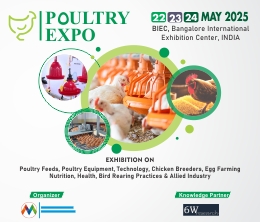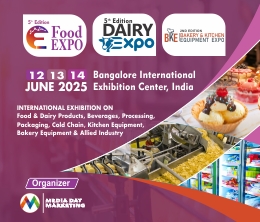Brazil Metal Packaging Market (2024-2030) | Analysis, Size, Revenue, industry, Forecast, Trends, Growth, Outlook, Value
Market Forecast By Material (Steel, Aluminum, Others), By Product Type (Cans, Caps & Closures, Drums & Barrels, Others), By End User (Food, Beverage, Personal Care, Healthcare, Others) And Competitive Landscape
| Product Code: ETC028342 | Publication Date: Mar 2023 | Updated Date: Nov 2024 | Product Type: Report | |
| Publisher: 6Wresearch | No. of Pages: 70 | No. of Figures: 35 | No. of Tables: 5 | |
Brazil Metal Packaging Market Highlights
| Report Name | Brazil Metal Packaging Market |
| Forecast period | 2024-2030 |
| Market Size | USD 10 Billion – USD 15 Billion |
| CAGR | 9.6% |
| Growing Sector | Industrial Manufacturing |
Topics Covered in the Brazil Metal Packaging Market Report
The Brazil Metal Packaging report thoroughly covers the market by type and by end user. The report provides an unbiased and detailed analysis of the on-going market trends, opportunities/high growth areas, and market drivers which would help the stakeholders to devise and align their market strategies according to the current and future market dynamics.
Brazil Metal Packaging Market Size & Analysis
In 2024, the Brazil Metal Packaging market is valued at approximately $ 10 billion, with a projected compound annual growth rate (CAGR) of 9.6% over the next five years. Additionally, by 2030, the market is expected to reach around $ 15 billion. The industrial manufacturing sector holds significant position in the overall market.
Brazil Metal Packaging Market Synopsis
The Brazil metal packaging market is experiencing steady growth, driven by the country’s thriving food and beverage, personal care, and pharmaceuticals industries. Metal packaging, including cans and containers, is valued for its durability, recyclability, and ability to preserve product quality, which is increasingly essential in a market where sustainability is a priority. Rising urbanization, shifting consumer preferences towards ready-to-eat and on-the-go products, and increasing awareness of environmental impacts are boosting the demand for metal packaging solutions. Additionally, technological advancements in lightweight, corrosion-resistant metal materials are enhancing product appeal and performance, positioning the metal packaging market as a key segment in Brazil’s broader packaging industry.
According to 6Wresearch, Brazil Metal Packaging market size is projected to grow at a CAGR of 9.6% during 2024-2030. The growth of Brazil’s metal packaging market is driven by strong demand from the food and beverage industry, where metal cans are preferred for their durability, light-blocking properties, and recyclability, aligning well with rising consumer awareness around sustainability. Increased urbanization and a higher consumption of packaged foods and drinks, including carbonated beverages, are further fueling market expansion.
Additionally, advancements in metal can designs and innovations such as Lightweighting and easy-open features are making metal packaging more appealing to both manufacturers and consumers. However, the Brazil Metal Packaging industry faces challenges such as fluctuating raw material prices, particularly for aluminum and steel, which impact production costs. Furthermore, competition from plastic and glass packaging, which are often cheaper, poses a constraint, as does the need to continually invest in sustainable packaging solutions to meet environmental regulations and consumer preferences for eco-friendly options.
Brazil Metal Packaging Market Trends
Sustainability Focus - Increasing consumer preference for eco-friendly and recyclable packaging is driving demand for metal packaging, as metals like aluminum and steel are highly recyclable.
Growth in Beverage Cans - The beverage industry is fueling the demand for aluminum cans due to their ability to preserve taste and extend shelf life, particularly for carbonated drinks and craft beverages.
Lightweighting Innovations - Manufacturers are investing in lightweight metal cans to reduce material usage and production costs, catering to sustainability goals without compromising durability.
Premiumization - High-quality, aesthetically designed metal packaging is being used to enhance product appeal, particularly in food, beverage, and cosmetics sectors.
E-commerce Demand - With the rise in online shopping, metal packaging is favored for its durability during transport, reducing the risk of product damage.
Health and Safety Concerns - Metal packaging’s ability to provide a barrier against contaminants is increasingly valued, especially in food and beverage applications.
Investment Opportunities in the Brazil Metal Packaging Market
Recycling Infrastructure - Investing in advanced metal recycling facilities offers potential, as demand grows for sustainable, recycled materials in packaging.
Lightweight Packaging Solutions - Opportunities exist in developing lightweight metal packaging that reduces material use while maintaining durability, which is appealing for both sustainability and cost-efficiency.
Specialty Cans for Niche Markets - Investing in production of specialty cans for craft beverages, energy drinks, and premium food products can tap into the growing trend of premiumization in packaging.
Customization and Printing Technology - Investment in advanced printing and customization capabilities can attract brands looking for unique designs to enhance brand appeal and consumer engagement.
Emerging Markets - Expanding metal packaging production and distribution in emerging markets like Latin America and Asia offers growth potential, driven by urbanization and rising disposable incomes.
Smart Packaging - Investing in smart packaging technologies, such as QR codes and temperature indicators, integrated with metal packaging can enhance customer experience and product tracking.
E-Commerce-Friendly Packaging - Developing robust, lightweight metal packaging solutions tailored for e-commerce offers opportunity, especially as online retail continues to grow.
Key Players in the Brazil Metal Packaging Market
Key players in the Brazil metal packaging market include Ball Corporation, Ardagh Group, and Crown Holdings Inc., which are leading in beverage and food cans with extensive regional production facilities and distribution networks. Can-Pack S.A. and Silgan Holdings Inc. are also prominent, offering a diverse range of metal packaging solutions that meet the growing demand for sustainable and recyclable options. Additionally, some of these players hold majority of the Brazil Metal Packaging market share.
Moreover, local players such as Brasilata and Rexam Brazil contribute significantly, focusing on innovation in lightweight and specialty packaging, especially for the food, beverage, and personal care sectors, catering to Brazil's increasing consumer preference for eco-friendly packaging alternatives.
Government Regulations in the Brazil Metal Packaging Market
Government regulations in Brazil’s metal packaging market focus on sustainability, waste reduction, and recyclability standards to align with global environmental commitments. The National Solid Waste Policy (PNRS) mandates corporate responsibility for the entire lifecycle of packaging materials, emphasizing recycling and reduced landfill usage. To meet these standards, metal packaging producers must comply with strict regulations on the use of materials, production processes, and post-consumer waste management.
Further, these initiatives have further boosted the Brazil Metal Packaging market revenues. Moreover, the government offers incentives for companies investing in eco-friendly practices, such as using recycled metals and reducing energy consumption during manufacturing, which further drives the market toward sustainable metal packaging solutions.
Future Insights of the Brazil Metal Packaging Market
The future of Brazil’s metal packaging market looks promising, driven by rising demand for sustainable and recyclable packaging options in response to growing environmental awareness among consumers and strict government regulations. Increased investment in advanced manufacturing technologies is expected to enhance production efficiency, reduce waste, and improve the quality of metal packaging.
Emerging trends, such as lightweight materials and innovative designs, will also support the adoption of metal packaging in various industries, from food and beverages to cosmetics. As consumer preferences shift toward eco-friendly products, metal packaging is likely to see steady growth, with market value projected to expand significantly over the coming years.
Steel Category to Dominate the Market - By Material
According to Ravi Bhandari, Research Head, 6Wresearch, the steel category in Brazil’s metal packaging market is set for substantial growth, primarily driven by its recyclability, strength, and cost-effectiveness. Steel's durability and resistance make it an ideal choice for packaging food, beverages, and industrial goods, ensuring product safety and longevity.
Increased environmental regulations promoting sustainable packaging options further favor steel, as it is one of the most recycled materials globally, aligning with consumer and regulatory demands for eco-friendly solutions. Advances in steel processing and Lightweighting technologies are also expected to enhance its appeal and usability, positioning steel as a dominant and resilient category within Brazil’s expanding metal packaging sector.
Cans Type to Dominate the Market – By Product Type
The growth of the cans segment within Brazil’s metal packaging market is primarily driven by rising demand for convenient, durable, and eco-friendly packaging solutions, particularly in the food and beverage sectors. Cans provide exceptional protection, preserve product freshness, and offer a longer shelf life, making them an ideal choice for both perishable and non-perishable goods.
Additionally, their lightweight nature and stack ability simplify transportation and storage, reducing overall logistics costs. With increased consumer preference for on-the-go products and heightened awareness around recyclability, the cans category is poised to see substantial growth, supported by advancements in can manufacturing and sustainable design.
Key Attractiveness of the Report
- 10 Years Market Numbers.
- Historical Data Starting from 2020 to 2023.
- Base Year - 2023.
- Forecast Data until 2030.
- Key Performance Indicators Impacting the Market.
- Major Upcoming Developments and Projects.
Key Highlights of the Report:
- Brazil Metal Packaging Market Outlook
- Market Size of Brazil Metal Packaging Market, 2023
- Forecast of Brazil Metal Packaging Market, 2030
- Historical Data and Forecast of Brazil Metal Packaging Revenues & Volume for the Period 2020 - 2030
- Brazil Metal Packaging Market Trend Evolution
- Brazil Metal Packaging Market Drivers and Challenges
- Brazil Metal Packaging Price Trends
- Brazil Metal Packaging Porter's Five Forces
- Brazil Metal Packaging Industry Life Cycle
- Historical Data and Forecast of Brazil Metal Packaging Market Revenues & Volume By Material for the Period 2020 - 2030
- Historical Data and Forecast of Brazil Metal Packaging Market Revenues & Volume By Steel for the Period 2020 - 2030
- Historical Data and Forecast of Brazil Metal Packaging Market Revenues & Volume By Aluminum for the Period 2020 - 2030
- Historical Data and Forecast of Brazil Metal Packaging Market Revenues & Volume By Others for the Period 2020 - 2030
- Historical Data and Forecast of Brazil Metal Packaging Market Revenues & Volume By Product Type for the Period 2020 - 2030
- Historical Data and Forecast of Brazil Metal Packaging Market Revenues & Volume By Cans for the Period 2020 - 2030
- Historical Data and Forecast of Brazil Metal Packaging Market Revenues & Volume By Caps & Closures for the Period 2020 - 2030
- Historical Data and Forecast of Brazil Metal Packaging Market Revenues & Volume By Drums & Barrels for the Period 2020 - 2030
- Historical Data and Forecast of Brazil Metal Packaging Market Revenues & Volume By Others for the Period 2020 - 2030
- Historical Data and Forecast of Brazil Metal Packaging Market Revenues & Volume By End User for the Period 2020 - 2030
- Historical Data and Forecast of Brazil Metal Packaging Market Revenues & Volume By Food for the Period 2020 - 2030
- Historical Data and Forecast of Brazil Metal Packaging Market Revenues & Volume By Beverage for the Period 2020 - 2030
- Historical Data and Forecast of Brazil Metal Packaging Market Revenues & Volume By Personal Care for the Period 2020 - 2030
- Historical Data and Forecast of Brazil Metal Packaging Market Revenues & Volume By Healthcare for the Period 2020 - 2030
- Historical Data and Forecast of Brazil Metal Packaging Market Revenues & Volume By Others for the Period 2020 - 2030
- Brazil Metal Packaging Import Export Trade Statistics
- Market Opportunity Assessment By Material
- Market Opportunity Assessment By Product Type
- Market Opportunity Assessment By End User
- Brazil Metal Packaging Top Companies Market Share
- Brazil Metal Packaging Competitive Benchmarking By Technical and Operational Parameters
- Brazil Metal Packaging Company Profiles
- Brazil Metal Packaging Key Strategic Recommendations
Market Covered
The report offers a comprehensive study of the subsequent market segments:
By Material
- Steel
- Aluminum
- Others
By Product Type
- Cans
- Caps & Closures
- Drums & Barrels
- Others
By End User
- Food
- Beverage
- Personal Care
- Healthcare
- Others
Brazil Metal Packaging Market : FAQs
| 1 Executive Summary |
| 2 Introduction |
| 2.1 Key Highlights of the Report |
| 2.2 Report Description |
| 2.3 Market Scope & Segmentation |
| 2.4 Research Methodology |
| 2.5 Assumptions |
| 3 Brazil Metal Packaging Market Overview |
| 3.1 Brazil Country Macro Economic Indicators |
| 3.2 Brazil Metal Packaging Market Revenues & Volume, 2020 & 2030F |
| 3.3 Brazil Metal Packaging Market - Industry Life Cycle |
| 3.4 Brazil Metal Packaging Market - Porter's Five Forces |
| 3.5 Brazil Metal Packaging Market Revenues & Volume Share, By Material, 2020 & 2030F |
| 3.6 Brazil Metal Packaging Market Revenues & Volume Share, By Product Type, 2020 & 2030F |
| 3.7 Brazil Metal Packaging Market Revenues & Volume Share, By End User, 2020 & 2030F |
| 4 Brazil Metal Packaging Market Dynamics |
| 4.1 Impact Analysis |
| 4.2 Market Drivers |
| 4.3 Market Restraints |
| 5 Brazil Metal Packaging Market Trends |
| 6 Brazil Metal Packaging Market, By Types |
| 6.1 Brazil Metal Packaging Market, By Material |
| 6.1.1 Overview and Analysis |
| 6.1.2 Brazil Metal Packaging Market Revenues & Volume, By Material, 2020 - 2030F |
| 6.1.3 Brazil Metal Packaging Market Revenues & Volume, By Steel, 2020 - 2030F |
| 6.1.4 Brazil Metal Packaging Market Revenues & Volume, By Aluminum, 2020 - 2030F |
| 6.1.5 Brazil Metal Packaging Market Revenues & Volume, By Others, 2020 - 2030F |
| 6.2 Brazil Metal Packaging Market, By Product Type |
| 6.2.1 Overview and Analysis |
| 6.2.2 Brazil Metal Packaging Market Revenues & Volume, By Cans, 2020 - 2030F |
| 6.2.3 Brazil Metal Packaging Market Revenues & Volume, By Caps & Closures, 2020 - 2030F |
| 6.2.4 Brazil Metal Packaging Market Revenues & Volume, By Drums & Barrels, 2020 - 2030F |
| 6.2.5 Brazil Metal Packaging Market Revenues & Volume, By Others, 2020 - 2030F |
| 6.3 Brazil Metal Packaging Market, By End User |
| 6.3.1 Overview and Analysis |
| 6.3.2 Brazil Metal Packaging Market Revenues & Volume, By Food, 2020 - 2030F |
| 6.3.3 Brazil Metal Packaging Market Revenues & Volume, By Beverage, 2020 - 2030F |
| 6.3.4 Brazil Metal Packaging Market Revenues & Volume, By Personal Care, 2020 - 2030F |
| 6.3.5 Brazil Metal Packaging Market Revenues & Volume, By Healthcare, 2020 - 2030F |
| 6.3.6 Brazil Metal Packaging Market Revenues & Volume, By Others, 2020 - 2030F |
| 7 Brazil Metal Packaging Market Import-Export Trade Statistics |
| 7.1 Brazil Metal Packaging Market Export to Major Countries |
| 7.2 Brazil Metal Packaging Market Imports from Major Countries |
| 8 Brazil Metal Packaging Market Key Performance Indicators |
| 9 Brazil Metal Packaging Market - Opportunity Assessment |
| 9.1 Brazil Metal Packaging Market Opportunity Assessment, By Material, 2020 & 2030F |
| 9.2 Brazil Metal Packaging Market Opportunity Assessment, By Product Type, 2020 & 2030F |
| 9.3 Brazil Metal Packaging Market Opportunity Assessment, By End User, 2020 & 2030F |
| 10 Brazil Metal Packaging Market - Competitive Landscape |
| 10.1 Brazil Metal Packaging Market Revenue Share, By Companies, 2023 |
| 10.2 Brazil Metal Packaging Market Competitive Benchmarking, By Operating and Technical Parameters |
| 11 Company Profiles |
| 12 Recommendations |
| 13 Disclaimer |
- Single User License$ 1,995
- Department License$ 2,400
- Site License$ 3,120
- Global License$ 3,795
Search
Related Reports
- Australia Electric Motor Market (2025-2031) | Trends, Share, Size, Value, Revenue, Industry, Growth, Analysis, Segmentation & Outlook
- Italy Textile Auxiliaries Market (2025-2031) | Outlook, Value, Companies, Share, Industry, Growth, Trends, Revenue, Forecast, Analysis & Size
- Tajikistan Diesel Genset (Generator) Market (2025-2031) | Value, Industry, Forecast, Revenue, Trends, Outlook, Share, Size, Companies, Growth & Analysis
- China Diesel Genset (Generator) Market (2025-2031) | Growth, Size, Trends, Industry, Value, Share, Analysis, Revenue, Segmentation & Outlook
- China Low Voltage Electric Motor Market (2025-2031) | Analysis, Size, Share, Trends, Growth, Revenue, industry, Forecast, Outlook & Segmentation
- Thailand Low Voltage Electric Motor Market (2025-2031) | Outlook, Revenue, Share, Value, Industry, Growth, Trends, Forecast, Analysis, Size & Companies
- India Wallpaper Market (2025-2031) | Forecast, Revenue, Industry, Companies, Outlook, Size, Analysis, Value, Growth, Share, Trends
- Thailand Artificial Flower Market (2025-2031) | Value, Industry, Outlook, Trends, Forecast, Size, Revenue, Companies, Analysis, Share & Growth
- United Arab Emirates Nitrogenous Fertilizers Market (2025-2031) | Outlook, Analysis, Industry, Forecast, Trends, Companies, Growth, Value, Size, Share & Revenue
- Germany Genset Rental Market (2025-2031) | Analysis, Share, Industry, Growth, Revenue, Companies, Trends, Outlook, Forecast, Value & Size
Industry Events and Analyst Meet
Our Clients
Whitepaper
- Middle East & Africa Commercial Security Market Click here to view more.
- Middle East & Africa Fire Safety Systems & Equipment Market Click here to view more.
- GCC Drone Market Click here to view more.
- Middle East Lighting Fixture Market Click here to view more.
- GCC Physical & Perimeter Security Market Click here to view more.
6WResearch In News
- India's Printer Market Faces 20.7% Decline in Q4 2023: Epson and HP Lead Amidst Downturn
- India's Camera Market Sees 8.9% Decline in Q4 2023; Canon Leads with 38.4% Share
- Doha a strategic location for EV manufacturing hub: IPA Qatar
- Demand for luxury TVs surging in the GCC, says Samsung
- Empowering Growth: The Thriving Journey of Bangladesh’s Cable Industry
- The future of gaming industry in the Philippines













